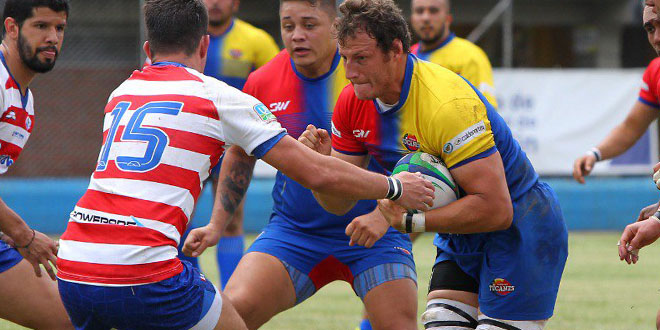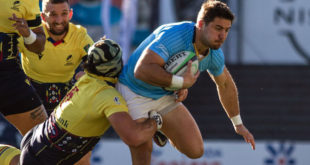New ground has been broken in South America as Colombia’s High Performance Rugby Program is underway. The most populated Spanish-speaking country in South America joins Argentina, Brazil, Chile, Paraguay, and Uruguay in investing in the future.
Los Tucanes demonstrated their extensive progress in 2018 by winning the Americas Rugby Challenge (ARCh). They did so by defeating Paraguay for the first time, overcoming significant odds in the process.
The ARCh will be back again this year with the Cayman Islands joining Colombia, Mexico, and Paraguay. The Caymans replace Guyana whom they defeated cleanly in a qualifying match last month.
In addition to the ARCh for Colombia is the Liga Americana de Rugby (LAR). Colombia is seeking to have a team in South Americans upcoming professional rugby competition. The LAR will begin in 2020 and Colombia is seeking a means to join as soon as possible.
Competing in LAR requires Colombia to have improved structures in place. This is to enable the union to sustain a franchise in the competition overtime. As such a High Performance program is Colombia’s path forward.
In preparing for 2019 activities and beyond Feco Rugby have set-up a support group for the first time. These include a nutritionist and a psychologist throughout the year to integrate together with a physiotherapist, masseuse, medic and team manager. Combined they are aimed at providing the players with the best possible guarantees.
Long serving players Sebastián Mejía and Emmanuel Bedoya have retired from international duty and have turned their attention elsewhere. They are to be the respective coach and physical trainer of Los Tucanes.
Additional changes to the national structure see the creation of the Copa Colombia, a new domestic competition. Under the directives of Sudamérica Rugby Feco Rugby will have a national league to enable the leading 100 players to play and improve their development.
The Copa Colombia will have four clubs from Antioquia; one from the north comprised of players from Santander, Norte de Santander, the Caribbean coast; and one from the south consisting of players from Bogotá, Cali, and Risaralda.
The competition will be played over five weekends at the Estadio Cincuentenario in Medellín. The venue is the unofficial home of Colombian rugby with it having played host to test matches in the past.
The players from the Copa Colombia will be evaluated to enable improved performance for all and to lift the national test side.
 Americas Rugby News Rugby news from across the Americas!
Americas Rugby News Rugby news from across the Americas!




